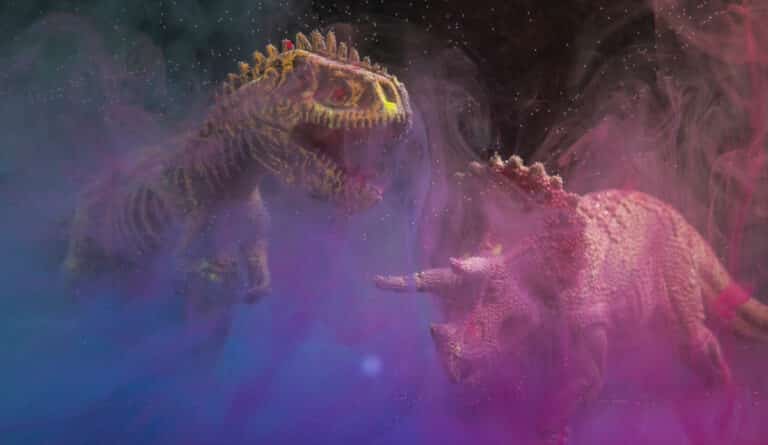Climate change was killing dinosaurs before the asteroid. Will we suffer the same fate?
More than 66 million years ago, a 12 kilometre-long asteroid crashed into the Yucatán peninsula in Mexico. The magnitude of the impact was so powerful that it triggered tsunamis worldwide and ejected dust into the atmosphere—plunging Earth into complete darkness. Most of the species were killed on impact as the planet slowly transcended into a ‘nuclear winter’ thereby causing mass extinctions.
This is the most widely accepted hypothesis regarding the fall of Earth’s previous occupants. A new study, however, suggests that the dinosaurs’ biodiversity was already on a steep decline—10 million years before the asteroid strike.
In a study published in the peer-reviewed journal Nature Communications, paleontologists analysed the ‘speciation-extinction dynamics’ for six key dinosaur families. Three of the families were carnivorous (the Tyrannosauridae, the Dromaeosauridae and the Troodontidae) while the other three were herbivores (the Ceratopsidae , the Hadrosauridae and the Ankylosauridae). All six families were the most representative and diversified species that survived 40 million years of evolution up until the asteroid hit Earth.
For five years, the researchers compiled information on these families and inventoried most of their fossils, which represented more than 1,600 individual dinosaurs of around 250 species in total. Once each fossil was categorised, they used a statistical model to estimate the number of species that evolved over time for each family. The researchers were then able to trace the species that both appeared and disappeared between 66 and 160 million years ago. The data also estimated the rates of speciation (the evolution of new species) and its extinction over time.

“Our results show that the number of species was in steep decline from 10 million years before the asteroid strike until the dinosaurs were wiped out,” the researchers concluded. “This decline is particularly interesting because it is worldwide, and affects both carnivorous groups such as Tyrannosaurs, and herbivorous groups such as Triceratops.”
While some species declined sharply, like the Ankylosaurus and Ceratopsians, only one family out of the six, the Troodontids, showed a very small decline—which only took place during the last five million years of its existence. So, what could have caused this? The paleontologists stress that it’s climate change.
Dinosaurs were neither ectothermic (cold-blooded) animals like crocodiles nor endothermic (warm-blooded) like mammals or birds. Instead, they were mesotherms—a metabolic system between reptiles and mammals that needed a warm climate to maintain its temperature and perform basic biological functions. At that time, however, the Earth underwent a period of global cooling of around 7 to 8 degrees Celsius. “This temperature decrease must have had a strong impact on them,” the researchers wrote.
The study also found a staggering difference between herbivores and carnivores—the grass-eaters declined before the meat-eaters. “It’s probable that the decline of herbivores is what caused the decline of carnivores. This is what we call cascade extinction.”
Featuring paleontologists from the University of Montpellier in France, the University of Bristol in the UK, and the University of Alberta in Canada, the study is the result of an international collaboration to analyse whether the extinction of dinosaurs was geologically abrupt or gradual. Although there is enough evidence to prove the latter, one question still remains: what would have happened if the asteroid had not crashed? Would dinosaurs have gone extinct anyway since their decline had already begun or could they have ‘rebounded’?
“Many paleontologists believe that if the dinosaurs had survived, primates and therefore humans would never have appeared on Earth,” the researchers said, as noted by The Conversation. “What we can say is that the ecosystems at the end of the Cretaceous period were under significant pressure due to climatic deterioration and major changes in vegetation and that the asteroid dealt the final blow.”
They also highlighted how this is the typical process for the disappearance of species in general. First they suffer a global decline and their population is under pressure. Then another event intervenes and finishes off the group when they are on the verge of extinction.
The study provides chilling insights when applied to our current situation. With earthquakes in Haiti, wildfires in Greece, floods in northern Turkey—not to mention a global pandemic—could we be in the midst of repeating history while making one? All we need is an asteroid strike to top it all off. Asteroid Bennu, I’m looking at you and your 1-in-1,750 chance of slamming into Earth now.





